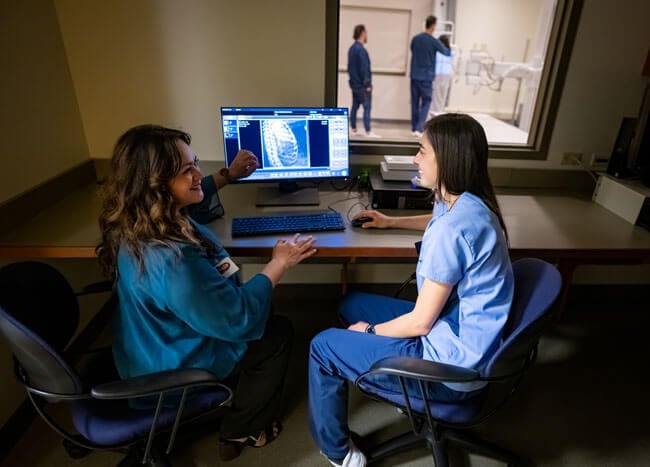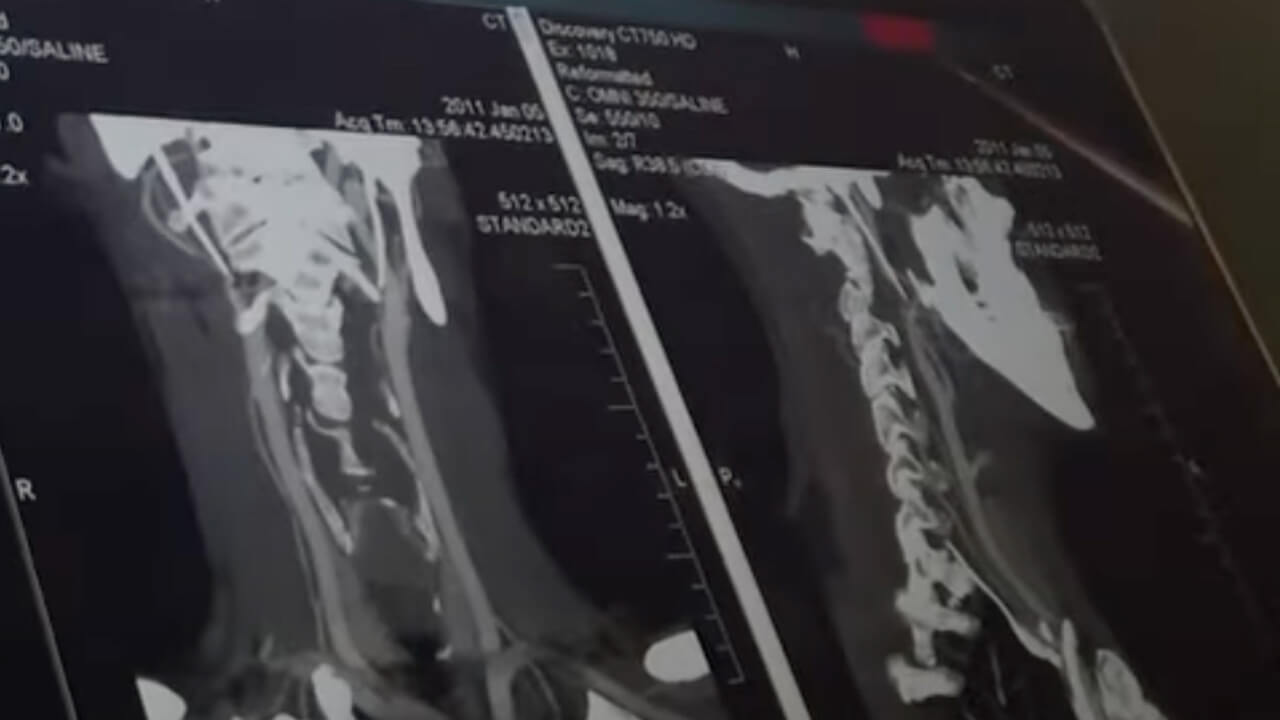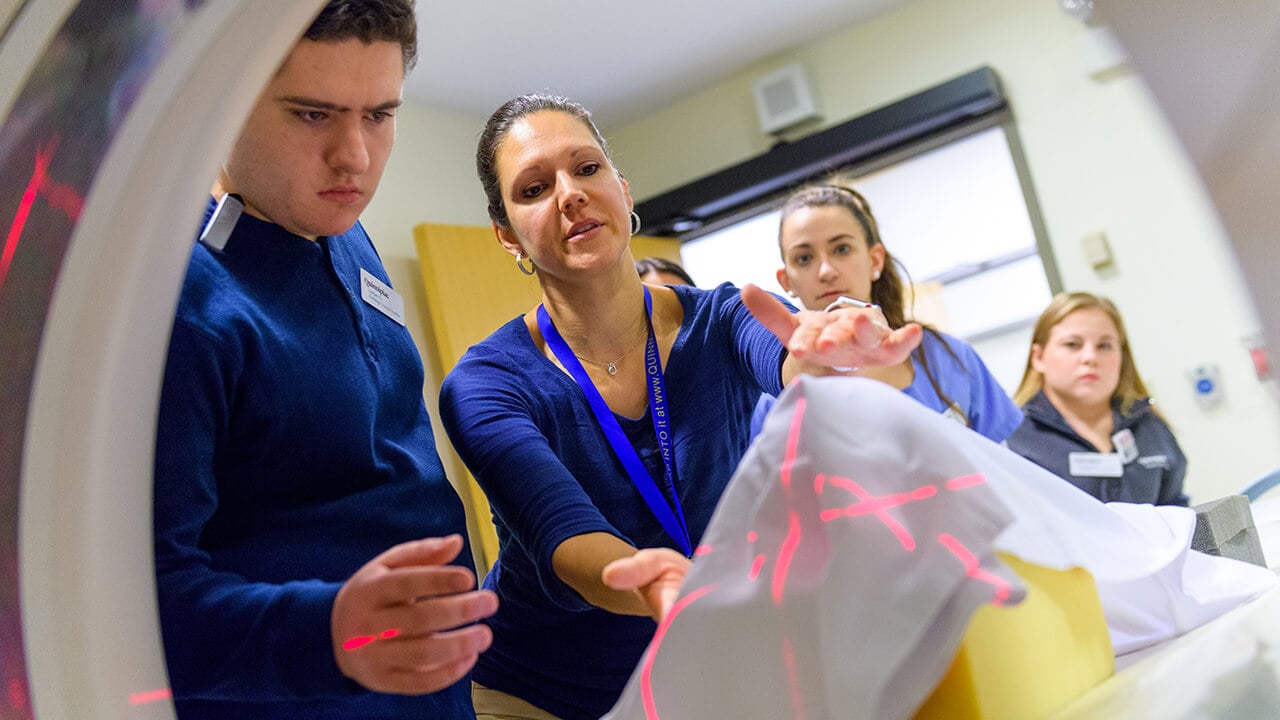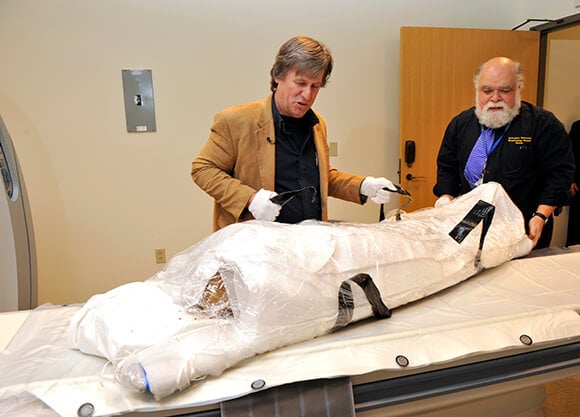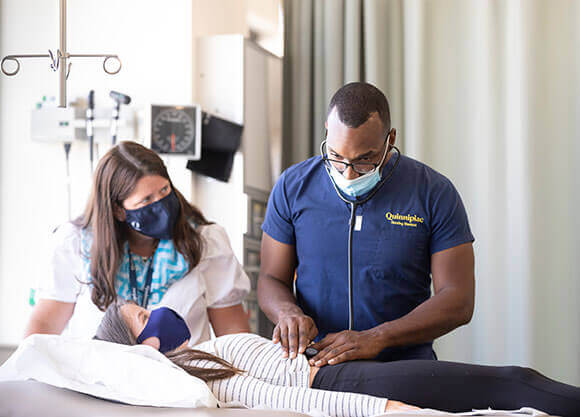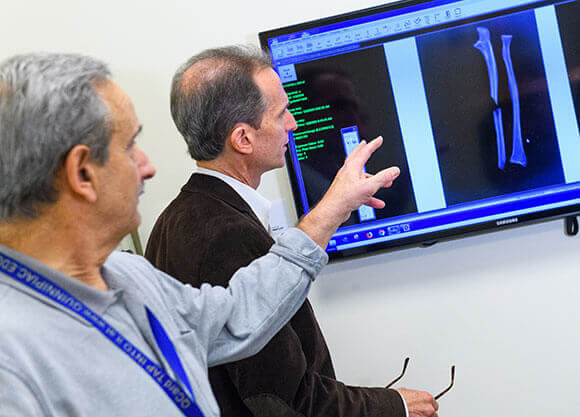As vital members of the diagnostic healthcare team, radiologic technologists use sophisticated medical imaging technology and examination practices to detect a range of injuries and illnesses, ensuring accurate patient diagnoses and treatments.
Program Overview
As a radiographer or radiologic technologist, you’ll provide physicians and other caregivers with a literal window into a patient’s health, revealing everything from common bone fractures and pneumonia to the presence of COPD and various cancers. You’ll leverage practical knowledge of radiology and radiation safety as well as physics, anatomy and pathology. Our program builds this knowledge through a combination of classroom, lab and clinical experiences as we teach you to become efficient and qualified entry-level technologists.
Our program, accredited by the Joint Review Committee on Education in Radiologic Technology, blends a classroom and lab approach. This enables you to apply your developing knowledge and skills to the care of real patients in clinical settings under the supervision of qualified technologists. The expertise you’ll gain prepares you for employment upon graduation as a radiographer in hospitals, specialty clinics and private practices.
Students are admitted to the 3-year BS in Radiologic Sciences program. In your final year, you'll be eligible to sit for the American Registry of Radiologic Technologists certification exam, a necessity for licensure in Connecticut and most states. Once licensed, your options are open for starting your career or applying to a graduate program. Quinnipiac offers an MHS in Advanced Medical Imaging and Leadership for those who wish to pursue a more advanced degree and gain a competitive edge in the healthcare industry.

